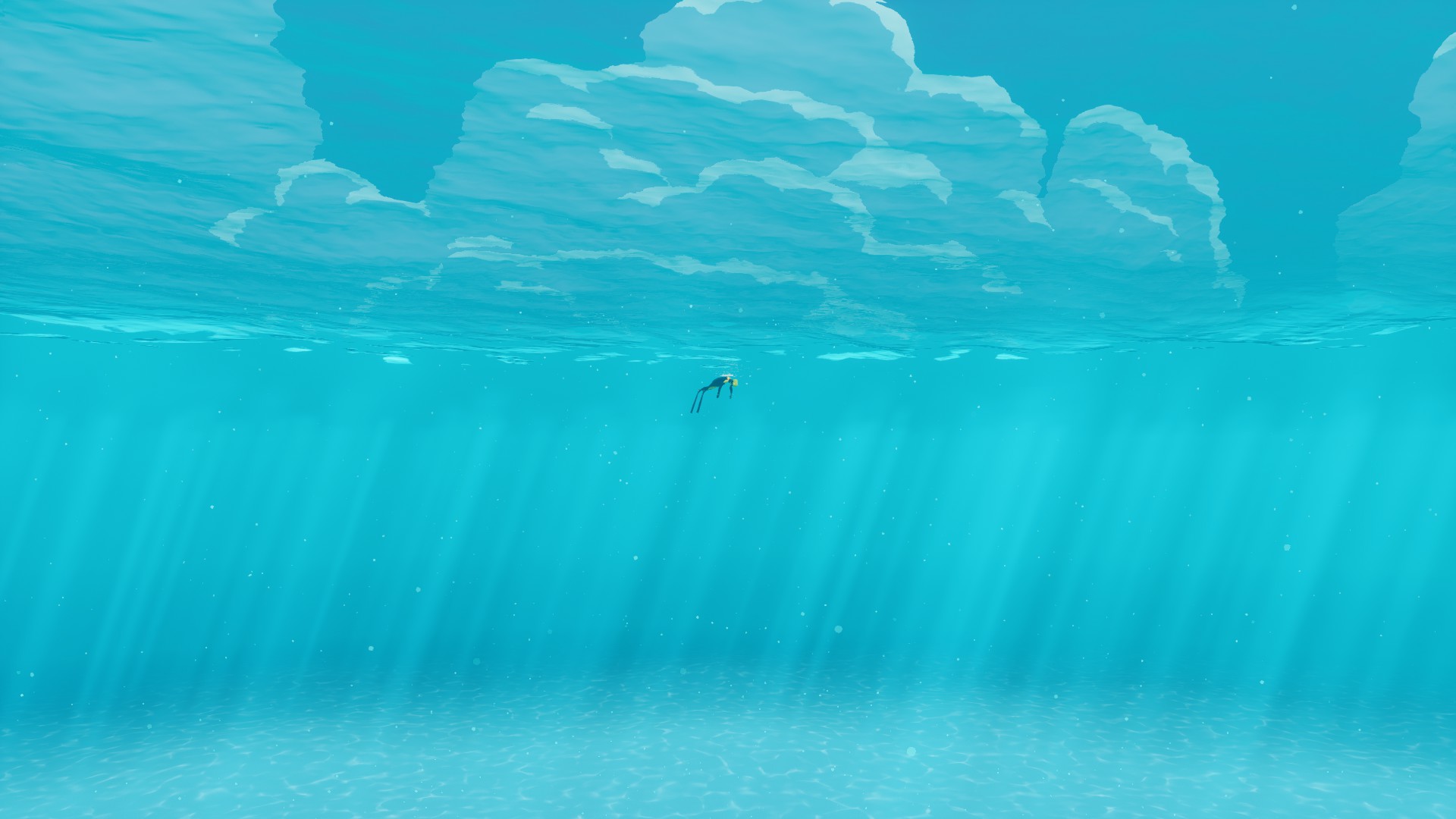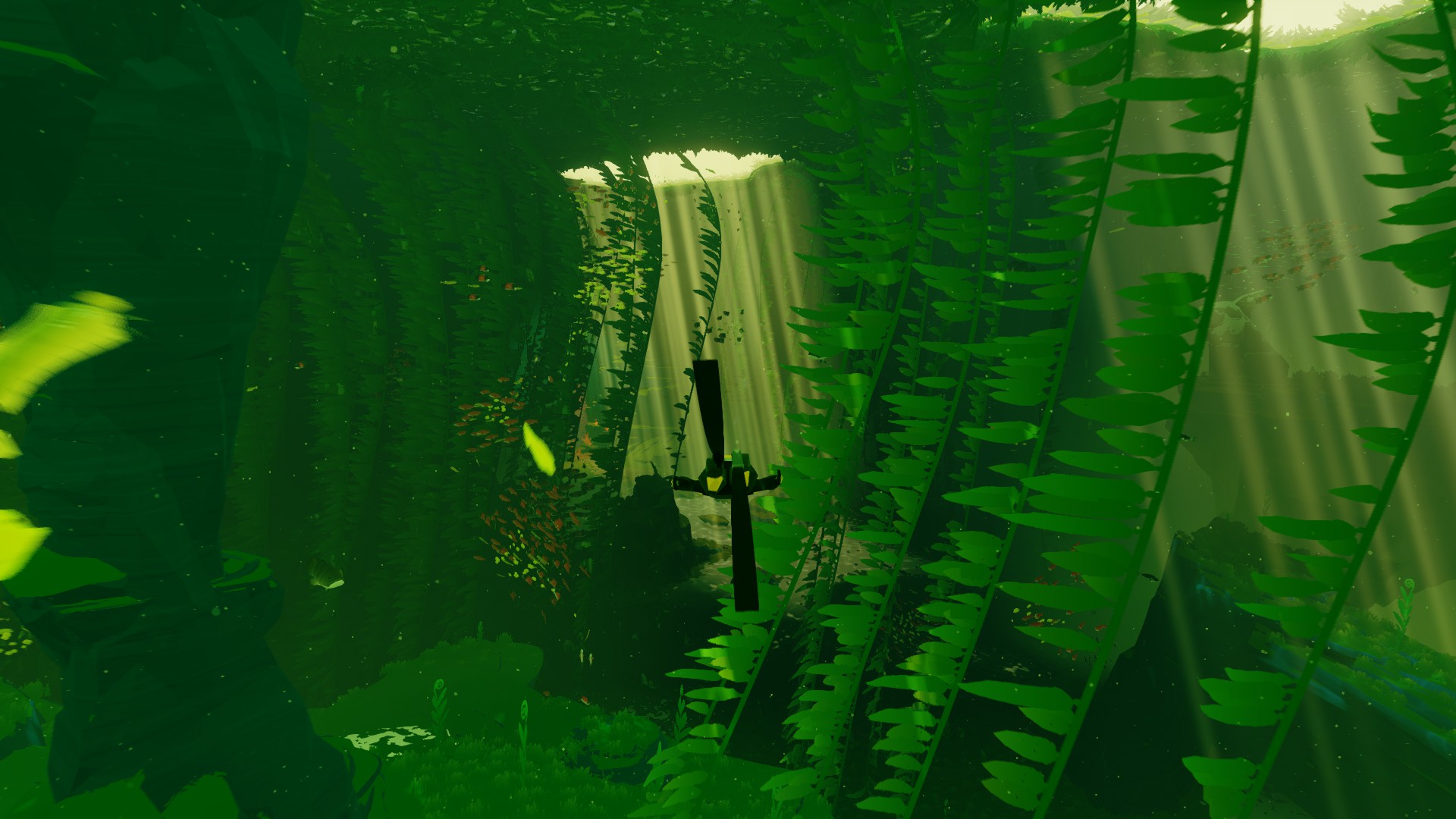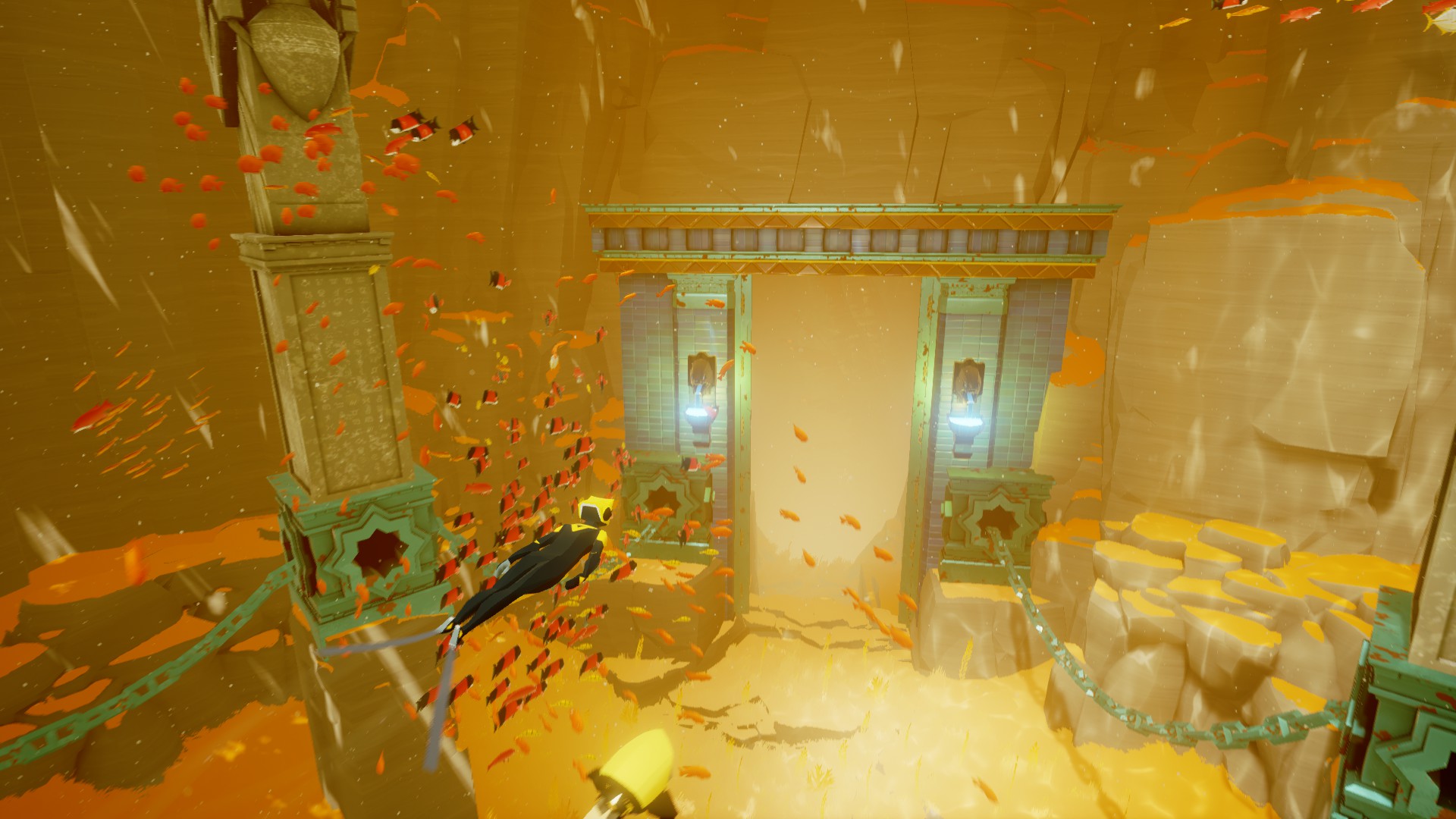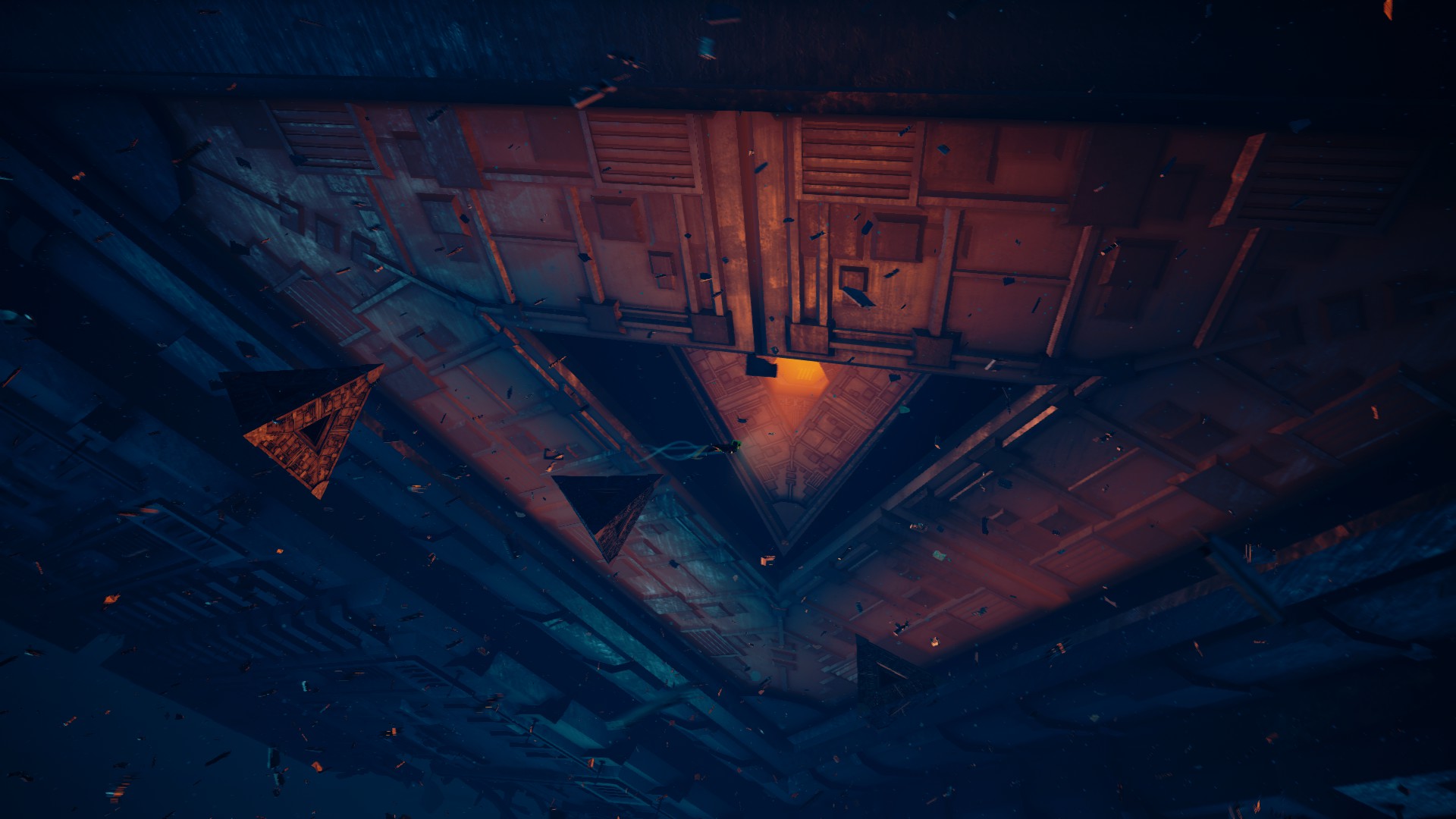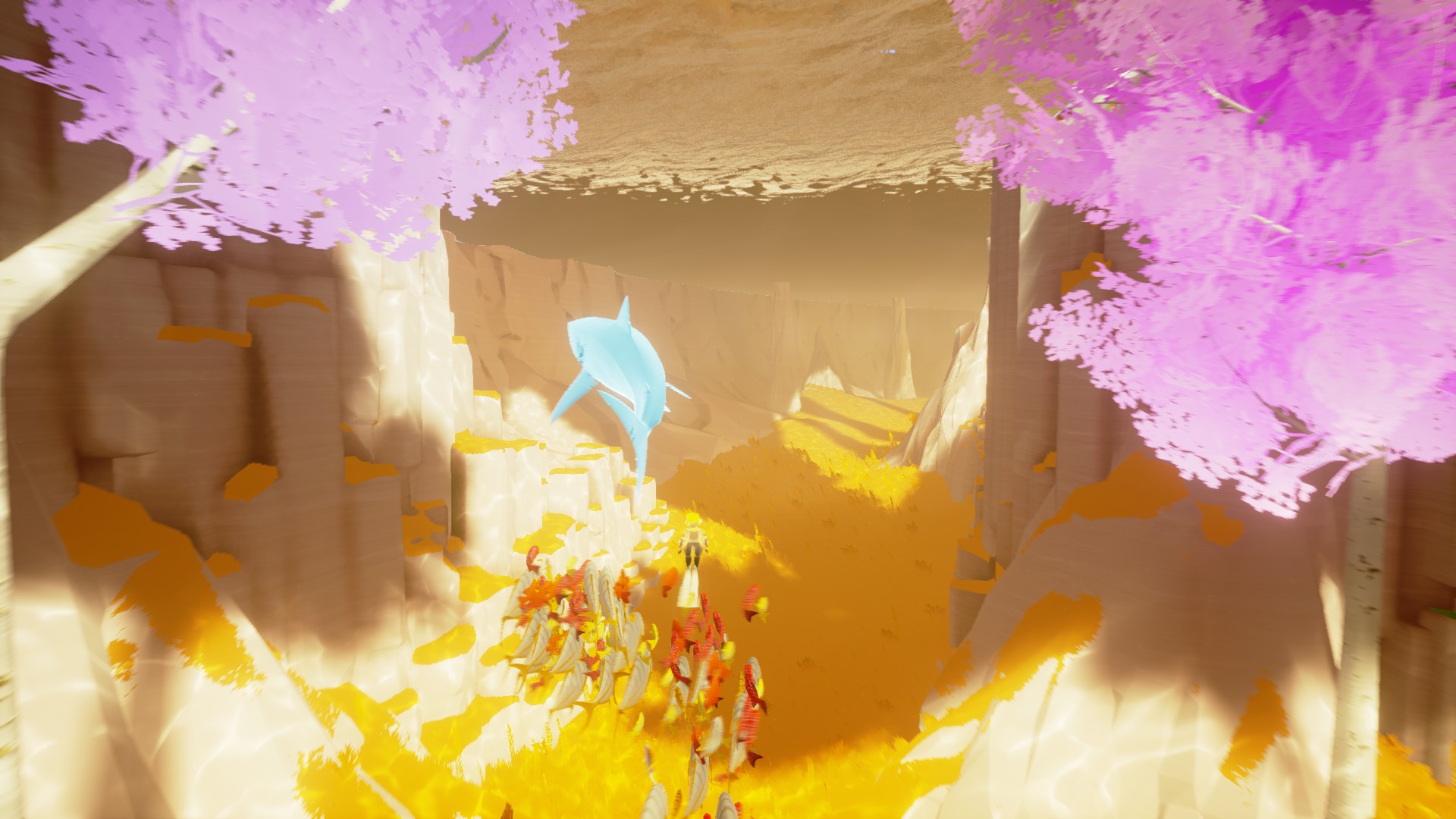Brought to you by the Summer 2017 Steam Sale and bad impulse control.
I am of two minds about ABZÛ. On the one hand, it’s a quiet, contemplative, and very pretty game. Extremely pretty. I mean, look at that. There will be a heavy sprinkling of screenshots just because this game is so pretty. It’s clearly intended as a meditative game…perhaps suggested by the various meditation spots throughout the game. You play as a creature of some description that is as at home in the water as in the air. The whole game is perfectly backed by chorals and strings, and is generously sprinkled with hints of a long-forgotten civilization’s ruins and Babylonian creation myth. Honestly, all that on paper makes up what would seem to be a game I would love.
The trouble is, ABZÛ isn’t really a game. It’s more a moderately interactive experience. True, you control a character and are supposed to solve puzzles. But the limits of your freedom are quickly made apparent as you are turned around mid-swim if you go too far in one direction or the other. The puzzles you solve are little more than pushing space when an icon lights up. For a significant portion of my playtime I had little control over either the character or the camera. There wasn’t much reward for exploration, so I finished the entire experience in 90 minutes.
When it comes to this sort of experience, I have a fairly favorable perspective. One of my favorite “games” is Kentucky Route Zero, a similarly meditative, moderately interactive experience that I very much recommend. The difference that makes me critique ABZÛ is the attempt to make it look like you have freedom. In KR0, it’s quite clear where you can go and what you can do. The limits of the world are exactly the stage you are playing on. In ABZÛ, you are initially promised the ocean, but it quickly becomes apparent that you are only supposed to explore certain parts of it – even when there aren’t invisible walls, there’s little but barren seafloor 50 feet away from the main experience.
Perhaps the part that truly rubbed me the wrong way was the attempt at a story. Ideally, you as a player are drawn in to a game through its mechanics and given reason to like the characters within. ABZÛ attempts a story, but stops every few seconds to remind you that you are actually playing a video game: pull this lever here, click space here, etc. etc.. This should be reversed – you use the mechanics of a game to do things that you want to do, and through doing those things you learn and play through the story. It’s a subtle difference – and one I’m too tired to adequately elucidate at the moment – but it is the difference between a good walking simulator and a bad one.
In the end, ABZÛ was an enjoyable 90 minutes. I don’t think I regret my $6 spent on the game. But I’m not sure I got any more out of it than I would have watching a Let’s Play. It’s tough to categorize this game since the meditative, visual aesthetic, and sound design aspects of the game are truly wonderful, but the walking simulator-ness and fake interactivity really mar the experience. I think I have to put it into Tier Two.
